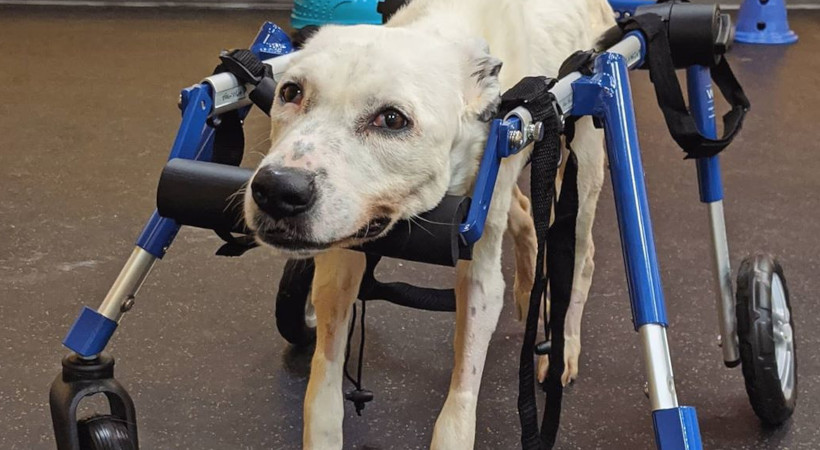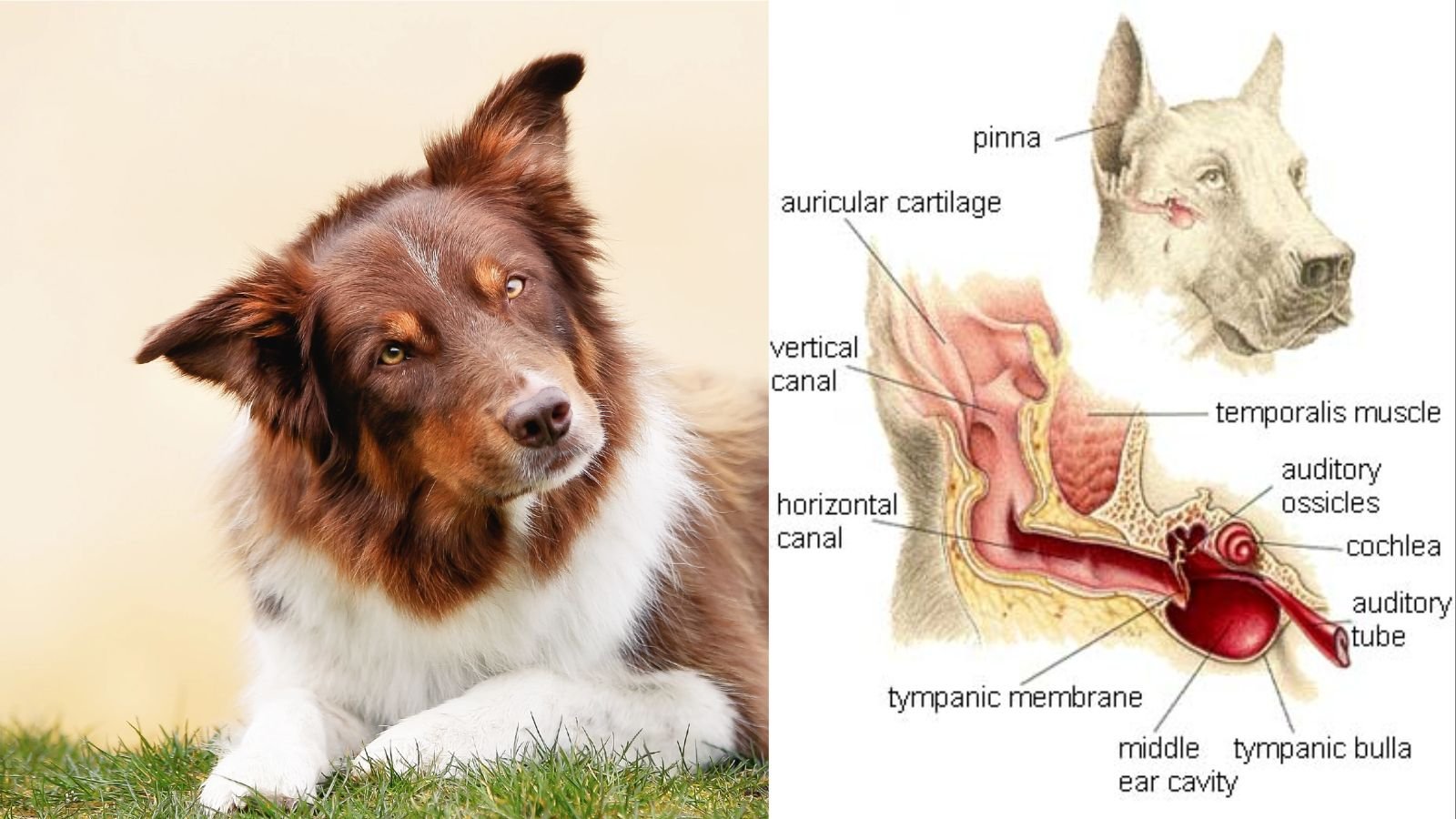Find out What to Feed a Dog With Vestibular Disease. To feed a dog with vestibular disease, offer easily digestible food in small, frequent meals. Ensure the diet is balanced and provides essential nutrients for overall health.
Vestibular disease can cause nausea and loss of appetite, so it’s important to encourage eating with tasty, appealing food choices. Consult your veterinarian for dietary recommendations tailored to your dog’s needs and condition. A nourishing diet can aid in recovery and support your dog’s well-being during this challenging time.
Always always provide fresh water and closely monitor your dog’s eating habits to ensure they get the nutrition they need.

Credit: www.youtube.com
Introduction To Vestibular Disease In Dogs
Vestibular disease in dogs affects the inner ear and brain, leading to disorientation, loss of balance, and a range of other symptoms. It can be frightening for both the dog and the owner. The good news is that with the right care and nutrition, dogs with vestibular disease can experience significant improvement in their condition. One important aspect of managing vestibular disease in dogs is ensuring they receive the right diet and nutrition to support their overall health and well-being.
Symptoms And Diagnosis
The symptoms of vestibular disease in dogs can be alarming and may include sudden loss of balance, head tilt, uncoordinated movements, and involuntary eye movements. These symptoms can often be mistaken for a stroke, but vestibular disease is typically not life-threatening and can often be managed with appropriate care. Diagnosis involves a thorough physical examination, neurological assessment, and, in some cases, imaging tests such as MRI or CT scans to rule out other potential causes of the symptoms.
Impact On Diet And Nutrition
Vestibular disease can impact a dog’s appetite and eating ability, leading to potential weight loss and nutritional deficiencies. In some cases, nausea and vomiting may also affect the dog’s willingness to eat. Therefore, providing easily digestible and palatable foods is crucial to ensure the dog receives adequate nutrition. The right diet can support the dog’s recovery and overall well-being, helping to manage symptoms and improve their quality of life.

Credit: www.walkinpets.com
Importance Of Nutrition In Managing Vestibular Disease
Vestibular disease can be a disorienting and frightening condition for dogs, causing symptoms such as loss of balance, head tilting, and nausea. Proper nutrition is vital in managing this condition and supporting the affected dog’s recovery. Pet owners can help alleviate symptoms, improve overall well-being, and enhance the dog’s quality of life by providing the right nutrients and dietary support.
Role Of Diet In Recovery
A balanced and carefully curated diet can significantly contribute to the recovery process for dogs with vestibular disease. It helps in maintaining optimal body condition, supporting the immune system, and managing any underlying health issues that may exacerbate the symptoms of vestibular disease.
Nutritional Needs For Affected Dogs
Dietary adjustments are essential to meet the specific nutritional needs of dogs with vestibular disease. These may include increased protein to aid in muscle repair and maintenance, healthy fats to support brain function, and supplements such as omega-3 fatty acids to reduce inflammation and promote overall well-being.
Dietary Adjustments For Dogs With Vestibular Disease
Dietary adjustments are crucial for dogs with vestibular disease to aid their recovery and overall well-being.
Consistency And Texture
Dogs with vestibular disease may have difficulty chewing and swallowing, so opt for soft, easily digestible foods.
Feeding Positions And Techniques
Elevate food and water bowls to a comfortable height to reduce strain on your dog’s neck and encourage easier swallowing.
Recommended Foods For Vestibular Support
When a dog is diagnosed with vestibular disease, providing the right nutrition is crucial for supporting their recovery and overall well-being. Choosing the appropriate foods can help alleviate symptoms and promote healing. Here are some recommended foods for vestibular support:
Balanced Commercial Diets
Dogs with vestibular disease can benefit from balanced commercial diets that provide essential nutrients. Look for high-quality dog food brands offering formulas tailored to support overall canine health. These diets should contain adequate levels of protein, healthy fats, vitamins, and minerals to aid in the dog’s recovery.
Beneficial Whole Foods And Supplements
Incorporating beneficial whole foods and supplements into your dog’s diet can contribute to their vestibular support. Add fresh ingredients such as cooked lean meats, brown rice, sweet potatoes, and green leafy vegetables. Additionally, omega-3 fatty acids and probiotic supplements can aid in reducing inflammation and promoting gut health for dogs with vestibular issues.
Foods To Avoid During Recovery
During recovery from vestibular disease, avoid feeding your dog foods high in salt, fat, or artificial ingredients. Opt for bland, easily digestible options like boiled chicken and rice to support their healing process. Steer clear of treats, table scraps, and processed foods that may worsen symptoms.
Foods to Avoid During Recovery
When a dog is recovering from vestibular disease, it’s important to be mindful of their consumed foods. Certain ingredients can exacerbate symptoms or hinder the recovery process. Potentially Harmful Ingredients and Common Food Allergens must be avoided to support the dog’s healing journey.
Potentially Harmful Ingredients
Potentially Harmful Ingredients
It is crucial to avoid certain ingredients that can potentially worsen a dog’s condition during its recovery from vestibular disease. High-fat foods, such as bacon or fatty cuts of meat, should be avoided, as they can trigger digestive issues and lead to discomfort for the dog. Additionally, spicy and seasoned foods should be kept from the dog’s diet, as they can cause stomach upset and inflammation.
Common Food Allergens
Common Food Allergens
Common food allergens, such as wheat, soy, and dairy products, should be avoided during the dog’s recovery from vestibular disease. These ingredients have the potential to trigger allergic reactions, leading to discomfort and further complicating the recovery process. Opting for hypoallergenic and easily digestible food options is essential to support the dog’s healing without any adverse reactions.
By being mindful of these Potentially Harmful Ingredients and Common Food Allergens, you can help ensure your dog’s recovery from vestibular disease is as smooth and comfortable as possible.
Hydration And Vestibular Disease
Proper hydration is essential for dogs with vestibular disease. Offer them water frequently, and consider feeding them wet food or adding water to their dry food to increase their fluid intake. Additionally, avoid giving them salty or dehydrating treats.
Importance Of Water Intake
Proper hydration is crucial for dogs with vestibular disease to aid in their recovery.
Tips For Encouraging Hydration
1. Keep water fresh and clean to encourage your dog to drink more.
2. Elevated bowls make drinking easier for dogs experiencing balance issues.
3. Add low-sodium broth to water or offer wet food to increase water intake.
4. Monitor water consumption closely to ensure your dog stays hydrated.
Homemade Diets And Recipes
When supporting a dog with vestibular disease, homemade diets and recipes can be crucial in their recovery. Pet owners can help alleviate the symptoms and promote overall well-being by providing nourishing and easily digestible meals. Here, we explore safe home-cooked options and recipe ideas tailored to support dogs with vestibular disease.
Safe Home-cooked Options
Feeding a dog with vestibular disease requires special attention to ingredients that are gentle on the stomach and provide essential nutrients. Opt for lean proteins, such as chicken or turkey, and incorporate easily digestible carbohydrates like rice or sweet potatoes. These ingredients can offer a balanced and easily digestible meal for dogs experiencing vestibular issues.
Recipe Ideas For Vestibular Support
When preparing homemade meals for a dog with vestibular disease, consider incorporating ingredients known for their anti-inflammatory and calming properties. Below are some recipe ideas that can provide comfort and support during this challenging time:
- Chicken and Rice Delight: Boil boneless, skinless chicken breast with cooked white rice. This simple yet nourishing meal is gentle on the stomach and provides essential protein and carbohydrates.
- Sweet Potato and Turkey Medley: Cook ground turkey with diced sweet potatoes for a nutritious and easily digestible meal. Sweet potatoes are rich in fiber and vitamins, offering additional support for your dog’s overall health.

Credit: toegrips.com
Monitoring And Adjusting The Diet
Monitoring and adjusting the diet is crucial when caring for a dog with vestibular disease. A well-managed diet can help alleviate symptoms and support your dog’s well-being. Here’s how to ensure your dog receives the appropriate nutrition while navigating vestibular disease.
Observing Your Dog’s Response
To monitor your dog’s response to the diet, observe any changes in their appetite, energy levels, and gastrointestinal function. Note any positive or negative reactions to specific foods or dietary adjustments. Maintain a food diary to track your dog’s meals and their corresponding reactions. This will help you identify patterns and make informed decisions about your diet.
When To Consult A Veterinarian
If you notice persistent or concerning changes in your dog’s condition, consult a veterinarian. Seek professional guidance if your dog experiences prolonged loss of appetite, vomiting, diarrhea, or any other problematic symptoms. A veterinarian can provide tailored advice to address your dog’s nutritional needs and ensure they receive the best care.
Frequently Asked Questions
What to Feed a Dog With Vestibular Disease?
To feed a dog with vestibular disease, offer easily digestible food in small, frequent meals. Ensure the diet is balanced and provides essential nutrients for overall health.
How Can I Help My Dog Recover From Vestibular Disease?
Provide a quiet, comfortable environment to help your dog recover from vestibular disease. Offer support and assist with walking. Consult a vet for proper diagnosis and treatment. Administer prescribed medications and monitor progress closely. Encourage gentle exercise and maintain a balanced diet.
What Makes Vestibular Symptoms Worse?
Certain triggers, such as bright lights, loud noises, or sudden movements, can exacerbate vestibular symptoms. Stress, fatigue, and dehydration may also worsen the condition.
What To Avoid With Vestibular Disorder?
To manage vestibular disorders, avoiding sudden head movements, bright and flickering lights, and fast-paced activities is best. Also, limit caffeine and alcohol intake. Lastly, avoid stress and anxiety, as they can worsen symptoms.
What OTC Meds Can I Give My Dog For Vestibular Disease?
OTC meds like meclizine or dimenhydrinate can help alleviate symptoms of vestibular disease in dogs. Always consult your vet first.
Conclusion
Feeding a dog with vestibular disease can be challenging, but with the right approach, it can be managed effectively. A well-balanced diet with high-quality protein, healthy fats, and essential vitamins and minerals can help your dog’s recovery.
Additionally, it is crucial to avoid foods that may cause inflammation or exacerbate symptoms. Consult with your veterinarian to determine the best diet plan for your furry friend and make sure to monitor their progress closely. Remember, with proper nutrition and care, your dog can return from vestibular disease and enjoy a happy, healthy life.

Hello I am Farhana I have been doing research on dogs since last 10 years. I have been doing research on dog special parts or dog food since last 10 years. I have gained knowledge about my dog in these ten years so. I want to blog about it daily.

